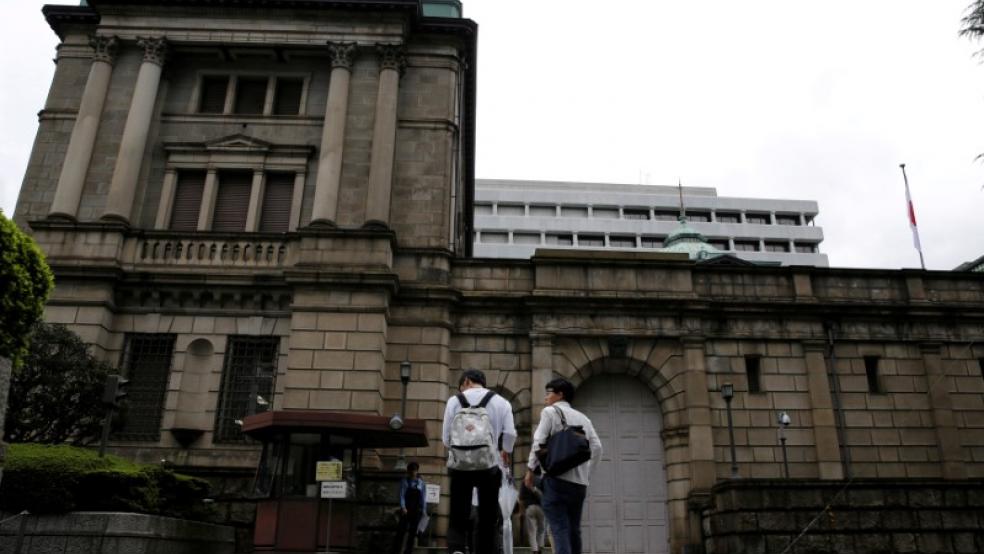TOKYO (Reuters) - Bank of Japan policymakers fretted over weak inflation expectations and uncertain prospects for achieving its price goal even before announcing its plan to conduct in September a comprehensive review of its policies, minutes of the central bank's policy meeting in July showed on Tuesday.
Many board members said inflation expectations were weakening and some warned they might not strengthen much any time soon, the minutes showed, a sign the policymakers were leaning toward modifying the BOJ's policy framework as three years of massive money printing failed to boost price growth."Members shared the recognition that risks to Japan's economic activity and prices remained skewed to the downside," according to the minutes of the July 28-29 meeting.At the meeting, the BOJ expanded stimulus by doubling purchases of exchange-traded funds (ETF) and announced a plan to conduct a comprehensive assessment of its policies at a subsequent meeting in September.At its rate review last week, the BOJ switched its policy target to interest rates from the pace of money printing, after years of massive asset purchases failed to jolt the economy out of decades-long stagnation.Prime Minister Shinzo Abe offered renewed endorsement to the decision on Tuesday, saying it would strengthen monetary policy and help quicken achievement of the BOJ's inflation target."Specific policy steps should be left up to the BOJ. I trust Governor Haruhiko Kuroda," Abe told parliament.STRUCTURAL REFORM NEEDEDAt the July meeting, some BOJ board members said Japan's inflation expectations were vulnerable to external shocks such as oil price declines and slowdown in overseas economies, according to the minutes.Given such uncertainties over the price outlook, the board decided to conduct the comprehensive review in September."A few members said the final goal of this comprehensive assessment was to assess what should be done to achieve the price stability target of 2 percent at the earliest possible time, and did not suggest the BOJ would be reviewing the price stability target itself," the minutes showed.Many members said the decision to expand ETF purchases was the best way to prevent market turmoil triggered by Britain's vote to exit the European Union from hurting Japanese business and household confidence, the minutes showed.But one member who opposed the decision said this would be viewed by markets as indicating that monetary easing was approaching its limit."There was a risk this action could trigger endless expectations for further monetary easing," the member was quoted as saying.Kuroda attempted to dispel views the BOJ is running out of ammunition, stressing the central bank is ready to use every possible policy tool to achieve its inflation target.BOJ Deputy Governor Hiroshi Nakaso, however, called for government and private-sector efforts to revive growth."The BOJ took bold steps last week ... but that alone isn't enough," Nakaos said on Tuesday. "There need to be structural reforms to promote innovation." (Additional reporting by Stanley White; Editing by Chang-Ran Kim & Shri Navaratnam)BOJ board was uncertain of reaching price goal: July minutes

© Toru Hanai / Reuters



